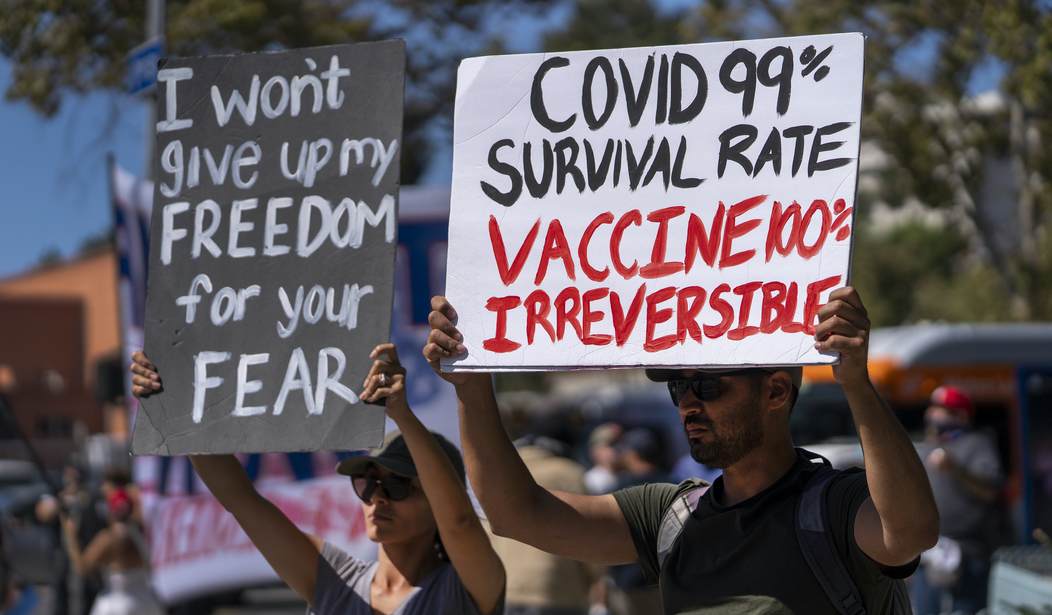In September, a Florida-based doctor made headlines when he sent a letter to patients stating that he would no longer accept unvaccinated individuals for in-person services. Other cities, like New York City, have implemented measures where proof of vaccination is required to enter a slew of indoor businesses. Despite some businesses taking these measures, a new poll shows how the majority of Americans feel about businesses denying service or employment to unvaccinated individuals.
An Axios-Ipsos poll published Tuesday shows that the majority of respondents, 51 percent, believe it should be illegal to deny service or employment to those who are unvaccinated. This view is held by 55 percent of Republicans, 51 percent of Independents, and 46 percent of Democrats.
The majority of employed Americans support employer-required vaccine mandates (54 percent) and requiring employees and customers to be masked in the workplace (65 percent).
As for booster shots, 56 percent of Democrats. 50 percent of Independents, and 45 percent of Republicans have gotten a Wuhan coronavirus booster shot. Two thirds, 67 percent, of unvaccinated Americans said the emergence of the Omicron variant makes no difference in whether they get vaccinated.
Among vaccinated Americans who have not received a booster, the majority, 59 percent, say the Omicron variant makes no difference whether or not they will get one. Thirty-six of respondents said they are more likely to get a booster after the discovery of the omicron variant.
Recommended
Fifty-three percent of vaccinated Democrats, 32 percent of Independents, and 21 percent of Republicans say they are more likely to get a booster because of the Omicron variant.
The majority of respondents, 52 percent, believe returning to pre-pandemic life, including gathering with friends and family outside the household, shopping at retail stores, and air travel, is a large or moderate risk. In late November, 44 percent of respondents believed this.
Thirty-one percent of respondents do not expect to return to their pre-pandemic life until more than a year from now. Seventy-two percent of respondents plan to see family or friends outside the household over the holidays.

























